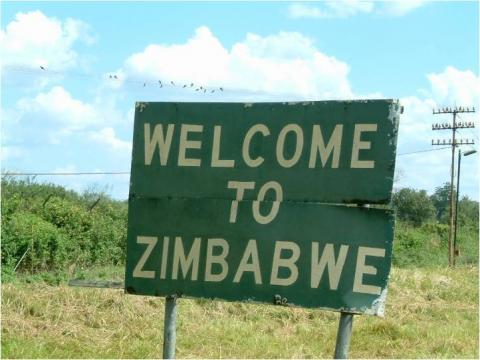Tales of a troubled nation

An independent Zimbabwean collection reveals another side to this tragic country. By Clare Lanigan.
In recent years it seems the only news stories coming out of Africa are about poverty, corruption, violence and misery, so it's easy to forget that the continent is more than just the disaster zone of the world. Fiction, poetry and art continues to flourish, although even in this day and age, many European readers' knowledge of black African writing begins and ends with Chinua Achebe, despite the high profiles in recent years of notable writers such as Purple Hibiscus author Chimamanda Ngozi Adichie. However, collections come along every now and then to remind us that Africa's literary life is not in stasis, and Long Time Coming is a welcome addition to this list, presenting a view of Zimbabwe infinitely more nuanced than the typical media vision of a bleak, depressing place presided over by a tinpot dictator.
Not that the authors in Long Time Coming, published by independent Zimbabwean imprint 'amaBooks, gloss over the difficulties of life in the country today. Themes of deprivation and hunger crop up again and again, but the capacity for humanity to find hope in otherwise desperate situations allays even the bleakest tales. The poverty-stricken narrator of 'The Chicken Bus' by Linda Msebele is cheered by a smile shared with a stranger in a bus. Sisters draw strength from each other after abusive marriages end in 'Loving The Self' by Bhekiliwize Dube, and a young woman driven to prostitution after her family are rendered jobless by an unscrupulous businessman exacts an extreme, but still satisfying revenge in 'Justice' by Wim Boswinkel. The cultural identity of white Zimbabweans is not ignored, with stories like 'The Pencil Test' and '10 Lanigan Avenue' featuring sympathetic white and mixed-race characters. The only group that face universal, and deserved, opprobium are the corrupt political leaders and their business cronies, portrayed to a man and woman as venal, greedy and self-justifying. However, one of the best stories in the collection, 'The First Lady's Yellow Shoes' by Peter Ncube, gets inside the mind of a Mugabe-like dictator forced to flee his country in a fictional revolution and reveals the skewed, but real humanity behind the delusions of authority.
With over 30 stories and poems in a slim volume and some stories only running to a couple of pages, the collection has a somewhat unfinished feel to it, and certainly plenty of the stories count as little more than impressionistic sketches. But there is enough new talent here to keep the casual reader interested, and enough decent characterisation to provide context for the recurring themes of hunger, HIV and inflation that naturally crop up. There have been shake-ups in the Zimbabwean government since the collection was first published in 2008, but in other ways very little has changed. It will be interesting to see how the next 'amaBooks publication deals with the country's story.
Long Time Coming: Short Writings From Zimbabwe can be bought from the African Books Collective
Edited by Jane Morris
'amaBooks, 2008
